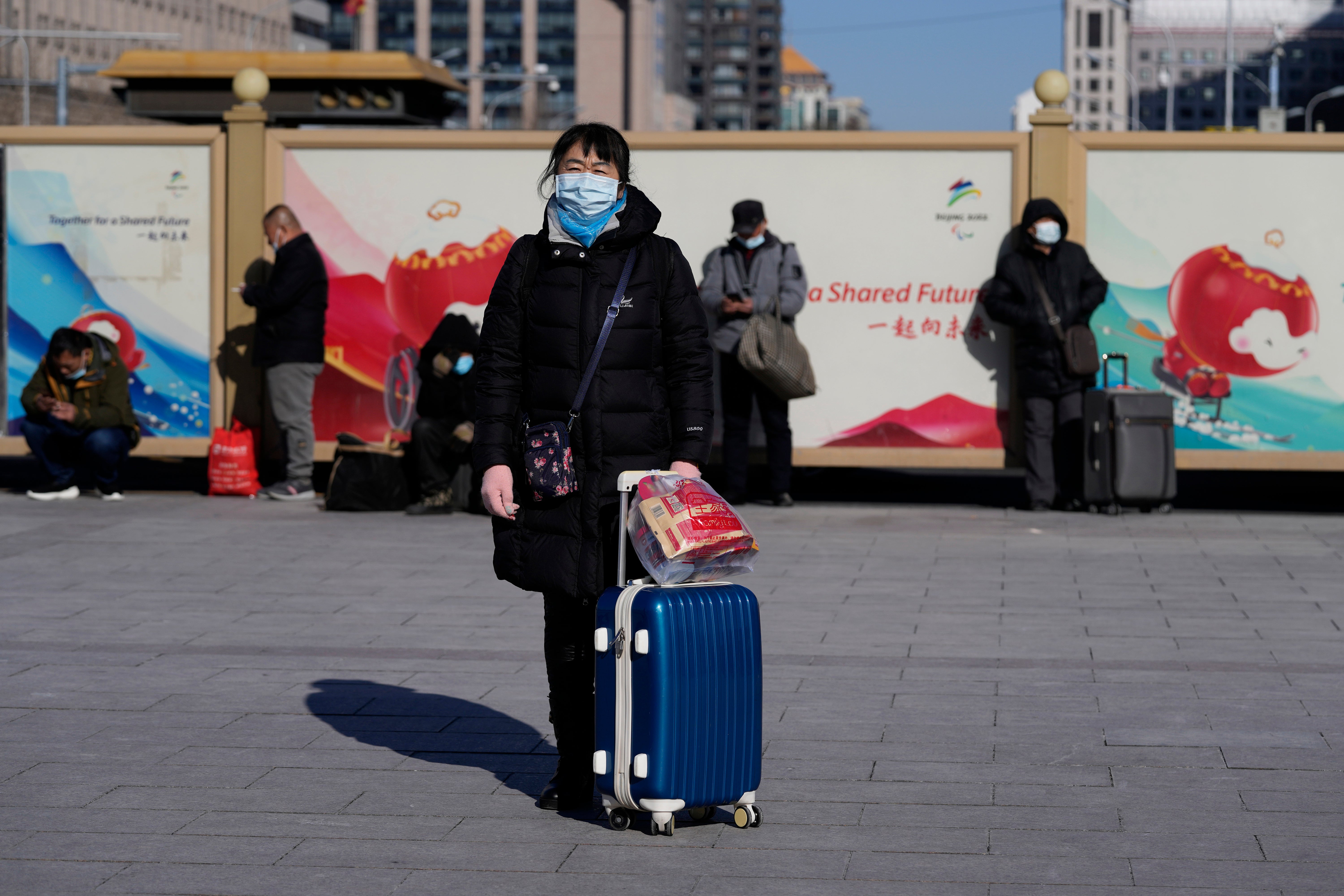Chinese travel for Lunar New Year despite plea to stay put
Chinese are traveling to their hometowns for the Lunar New Year, the country’s biggest family holiday, despite a government plea to stay where they are as Beijing tries to contain coronavirus outbreaks

Your support helps us to tell the story
From reproductive rights to climate change to Big Tech, The Independent is on the ground when the story is developing. Whether it's investigating the financials of Elon Musk's pro-Trump PAC or producing our latest documentary, 'The A Word', which shines a light on the American women fighting for reproductive rights, we know how important it is to parse out the facts from the messaging.
At such a critical moment in US history, we need reporters on the ground. Your donation allows us to keep sending journalists to speak to both sides of the story.
The Independent is trusted by Americans across the entire political spectrum. And unlike many other quality news outlets, we choose not to lock Americans out of our reporting and analysis with paywalls. We believe quality journalism should be available to everyone, paid for by those who can afford it.
Your support makes all the difference.Chinese are traveling to their hometowns for the Lunar New Year, the country’s biggest family holiday, despite a government plea to stay where they are as Beijing tries to contain coronavirus outbreaks.
The holiday, which starts Wednesday, usually is the biggest annual movement of humanity as hundreds of millions of people who migrated for work visit their parents and sometimes spouses and children they left behind or travel abroad.
Some 260 million people traveled in the 10 says since the holiday rush started Jan. 17, less than before the pandemic but up 46% over last year, official data shows. The government forecasts a total of 1.2 billion trips this during the holiday season, up 36% from a year ago.
“I know we are encouraged to spend the New Year in Beijing, but I haven’t been back home for three years,” said Wang Yilei, whose hometown is Tangshan, east of the capital. “My parents are getting old and they are looking forward to seeing me.”
The Chinese capital, Beijing, is tightening controls to contain coronavirus outbreaks ahead of next week's opening of the Winter Olympics, a high-profile prestige event.
China s infection numbers are modest compared with India, South Korea and some other countries. But they challenge Beijing's “zero tolerance” strategy that aims to keep the virus out of China by isolating every infected person.
Athletes, reporters and officials at the Winter Games are required to avoid contact with outsiders in hopes of preventing infection.
Some 106 of the 3,695 people who arrived from abroad for the Games so far tested positive for the coronavirus. Two are athletes or team officials.
Authorities in Beijing have ordered mass testing for more than 2 million people in the capital's Fengtai district following outbreaks there. Some families were ordered not to leave their homes.
Elsewhere, 1.2 million people in an area 60 miles (100 kilometers) south of Beijing that is being developed as a possible site for ministries to relocate were told to stay put.
Restrictions were imposed on Xiong'an New District this week after five cases were found in people who came from the capital, according to notices circulated online by residents. They said the controls would last seven days.
People who travel are required to show a negative result of a virus test within 48 hours before departure.
“We should go back home for the New Year as long as we can, if the local prevention policies allow us to,” said Wu Jinpeng, a university student who was en route from the southern island of Hainan to his hometown near Beijing.
Some travelers face the prospect of being ordered into quarantine if they arrive from areas deemed at high risk of infection.
Travelers are tracked by “health code” software on smartphones that records where they go and the results of virus tests.
“I called the government hotline of my hometown and they said I can go back, as long as my health code is green,” said Sun Jinle, a bank employee from Qinhuangdao, east of Beijing.
“If I live in Fengtai District of Beijing then I can’t (go home),” Sun said. “Luckily, I live in Tongzhou District,” which has no travel ban.